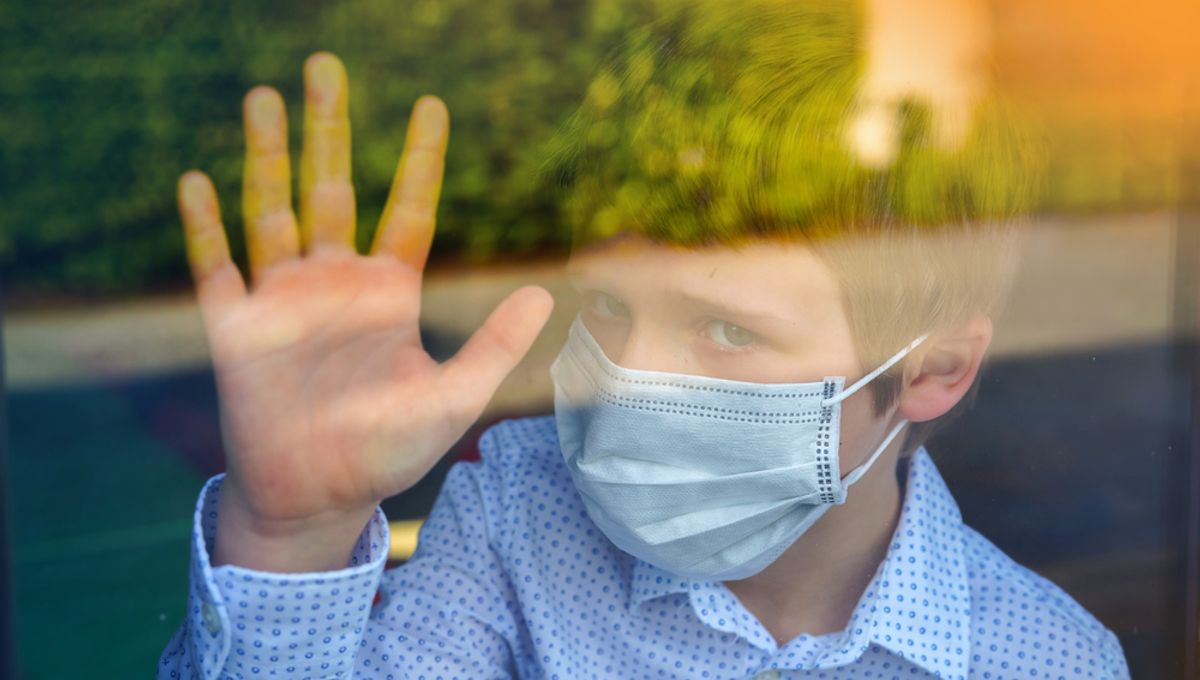
Tempting as it is to push memories of lockdown to the back of our minds, the impact of the COVID-19 pandemic has had a lasting effect on society. Now, new research reveals the long-reaching effect of lockdowns on a crucial skill among children – social cognition.
ADVERTISEMENT GO AD FREE
Social cognition is the ability to understand another’s behavior. It enables us to interpret and predict other people’s actions and is crucial to forming positive relationships and communicating effectively with others.
Now, it appears that lockdowns, social distancing and school closures – while necessary for curbing the spread of COVID-19 – have negatively impacted the development of social cognition of preschoolers, particularly those from lower socioeconomic backgrounds.
A team at University of California-Merced came to this conclusion after comparing data on children aged 3-and-a-half years to 5-and-a-half years that had been collected before and after the pandemic. The data related to a phenomenon called false-belief understanding, aka the ability to realize that other people can be wrong.
One of the three tasks included in the study involved a puppet called piggy, who placed a toy in one of two containers before leaving. When piggy had left, another puppet, doggy, transferred the toy to the other container. The researchers then asked the child which container piggy would check. Those with age-appropriate social cognition skills would understand that piggy would select the first container even though they themselves knew it was in the other container.
“It was remarkable to see the drop in kids’ performance,” lead author Rose Scott, a psychology professor at the University of California-Merced, said in a statement .
“On one of the tasks in my lab, children tested before the pandemic could pass at 2 and a half years old. Right after the lockdowns, we were seeing 5-year-olds not passing it.”
ADVERTISEMENT GO AD FREE
Whereas four in five of the 5-year-olds tested before lockdown completed the test successfully, only 63 percent of the post-lockdown group passed. This dropped to 51 percent of those from lower income homes. While the study did not identify reasons for this gap, previous research has suggested that lockdowns offered higher-income families additional one-on-one time that had a positive effect of child development lockdowns.
What are the long-term ramifications?
According to Scott, children lacking these essential skills may find it harder to socialize with peers and succeed academically in later years.
“You think about what a child needs to do to interact with others in a classroom. They want to have friends, but have to take other perspectives into consideration to have effective social interactions,” said Scott.
ADVERTISEMENT GO AD FREE
“Like, ‘I know you want to play this now, but I really want to play this.’ It’s being able to hold those two viewpoints in mind and still interact.”
This is not the first piece of research showing the impact of lockdowns on childhood health and development. From premature aging observed in the brains of teenage girls to an increase in developmental delays, it increasingly appears the COVID-19 pandemic has had a long-lasting effect on children and young people.
The research has been published in the journal Scientific Research.
Source Link: COVID Lockdowns Disrupted A Crucial Skill Among Young People